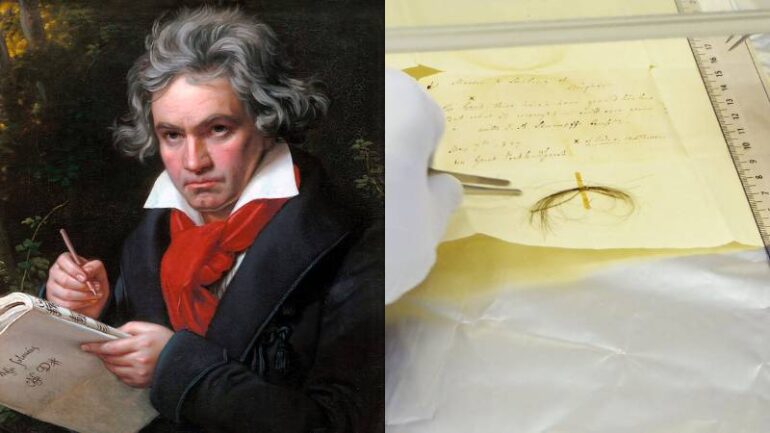It has been almost 200 years since one of the greatest composers in the history of Western music, Ludwig van Beethoven, passed away.
As the cause of his death remained secret, researchers pulled DNA strands of his hair, searching for clues about his health problems.
Tune into the full episode of Science Explained with host, Dr Sophie Calabretto to hear the full recap of this month’s discoveries.
Dr Sophie Calabretto and Cosmos Magazine journalist Imma Perfetto take a deep dive into the discussion on how DNA from Beethoven’s hair can provide clues about his death.
Perfetto says that the death of Beethoven has become the subject of many rumours over the years, with historians and scientists mulling it over for decades.
“Some believed it was from alcoholism and lead poisoning. Some were connecting it to his deafness. Very famously, he became increasingly deaf in his later life,” Perfetto explained.
However, scientists now believe they are one step closer to the truth as Beethoven’s genome has been decoded using hair samples.
Perfetto says that researchers looking to decode his genome have cross-referenced eight different hair samples taken from different Beethoven collections across Europe, the UK and the US.
Surprisingly, researchers have found that three of the samples were completely ruled out as being from Beethoven’s head.
“Of the five authentic samples, one is known as the Stumpff lock. It was found to be the best preserved of the bunch, and it was actually the one that was used to provide the genetic sequence for the analysis that they did,” she added.
The Stumpff lock has led to the discovery of gene variants, highlighting Beethoven’s potential health risk of liver cirrhosis.
“That’s just the permanent scarring of the liver, and it sort of stops the liver from working normally,” Perfetto explained.
Although scientists cannot conclude the direct cause of his death, the study has identified liver complications.
“It’s a very interesting sort of case study into our fascination with how people die, especially with musical icons and celebrities and people like Beethoven who died nearly 200 years ago and we’re still trying to figure it out.”
Introducing The Science Briefing: a podcast about the science of everything and your new go-to podcast for your snapshot of science news. Hosted by Dr Sophie Calabretto and featuring journalists from Cosmos Magazine.
